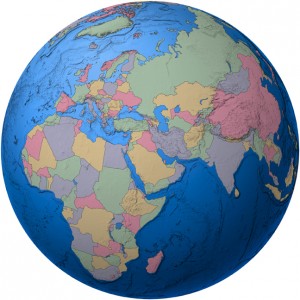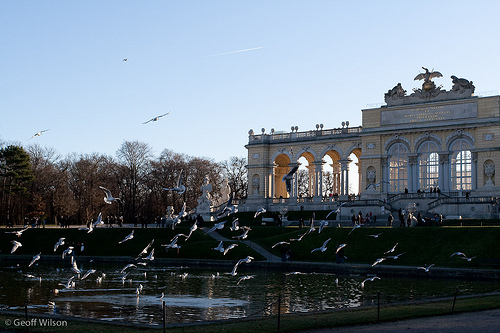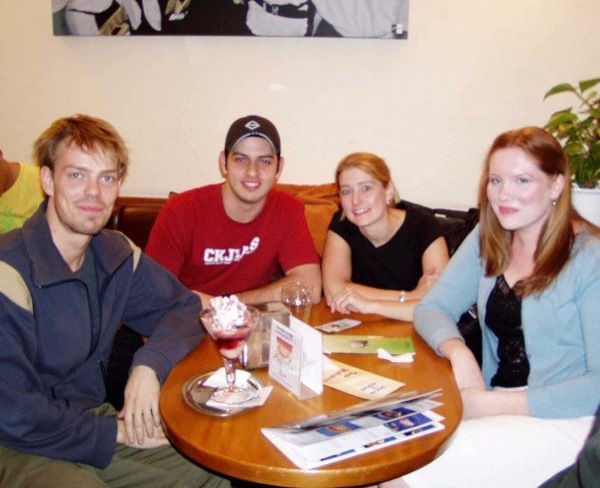Are you a Third Culture Kid?
Did you live in more than one country during your childhood?
Do you have trouble answering the seemingly innocent question ‘Where are you from’? (well… my passport says I am from Brazil, but actually I grew up in Italy and China, before moving to London for university and now I live in the US…)
Then you can consider yourself to be a Third Culture Kid (TCK).
I’ll never forget the moment I first found out that I was a Third Culture Kid. I was on Facebook 7 years ago and saw that a friend of mine had joined a group called Third Culture Kids. The name sounded interesting so I clicked on the link and began to read:
A TCK is defined as:
“a person who has spent a significant part of his or her developmental years outside the parents’ culture. The TCK frequently builds relationships to all of the cultures, while not having full ownership in any. Although elements from each culture may be assimilated into the TCK’s life experience, the sense of belonging is in relationship to others of a similar background”
Reading this definition taken from the brilliant book Third Culture Kids written by David Pollock and Ruth van Reken was one of the most important moments of my life. Suddenly I understood why I didn’t really feel at home 100% in any culture, but most importantly, I realized I was not alone in feeling the way that I did, and that many many others felt the same.
TCKs have many other names: global nomads, expat kids, global citizens, cosmopolitans … the list goes on. Traditional TCK’s are children whose parents are diplomats or those working for the army, missionaries, international businesses or international organisations, thus moving to different countries around the world due to their parents careers.
Pollock and Van Reken go on to explain that TCKs are “raised in an neither/nor world. It is neither fully the world of their parents’ culture (or cultures) nor fully the world of the other culture (cultures) in which they were raised”, nor even a collection of all of the cultures they have experienced. Rather, these children “develop their own life patterns different from those who are basically born and bred in one place”. Many of these children struggle to answer the question where are you from? They form an identity that is “associated with feelings of closeness to people beyond the nation-state”, or as the philosopher Diogenes stated, true cosmopolitan ‘citizens of the world’.
Personally, I think the term Third Culture Kid is an excellent beginning in an almost impossible task of describing the experiences of individuals who have lived between different cultures, be it different countries, or even different cultures within one country (although this is less emphasised in the book). I have also noticed similar descriptions from individuals who have been forced to move to another country as a refugee, but had thought they still only identified with their home country, until they were able to return back to their home country some years later, and realised that they had actually adopted some of the norms of their adoptive country and now did not feel as though they fully belonged anywhere.
The great news is, you are not alone! TCKs have always existed, and today more than ever. In our increasingly globalised world more and more people are choosing to live overseas for work opportunities, adventure or for other personal reasons, and they are bringing their families with them, be it for a year or two or permanently. This is especially common now that the EU makes mobility between countries so simple with an estimated 2-3% (around 14 million) of EU citizens living in another EU country. US citizens are also highly mobile, and over 4 million are estimated to live overseas, as well as a million Australians and the same number of Japanese.
As adults, TCK’s are more likely to maintain the highly mobile lifestyle of their parents, than to remain in one country or city for the rest of their lives. Many are drawn to cosmopolitain cities such as London, New York, Munich and so on, where there is an increased possibility of interacting with other like minded people.
Being a TCK is a wonderful thing, it allows you to view the entire world as a potential home, to understand how it feels to be an outsider and to make others more welcome as a result. You might not be able to easily answer the question “so where are you from”, but that is a small price to pay for an amazing experience.
I’ll be posting up plenty more about Third Culture Kids and Cross-Culture Kids, but I can highly recommend the following books for those who want an in-depth look at this topic:
- The book Third Culture Kids: Growing Up Among Worlds by David C. Pollock and Ruth E. Van Reken
- Raising Global Nomads: Parenting Abroad in an On-Demand World by Robin Pascoe
And some online resources:
- TCKid – an online resource for Third Culture Kids and Adult Third Culture Kids
- Facebook group: Third Culture Kids Everywhere













